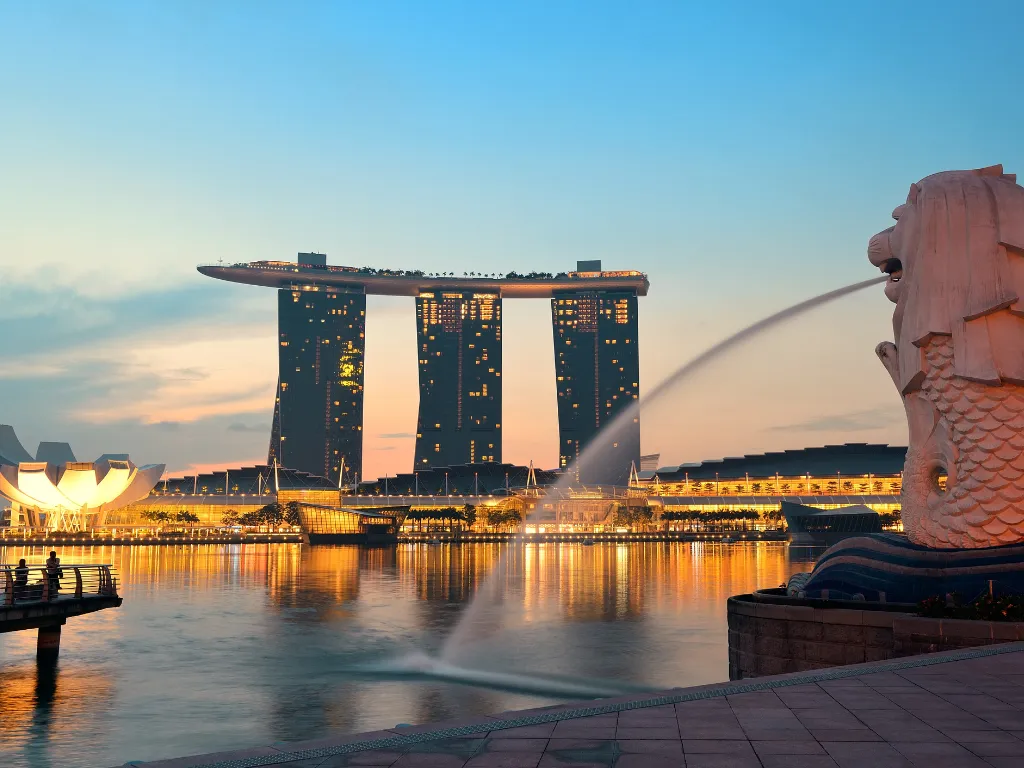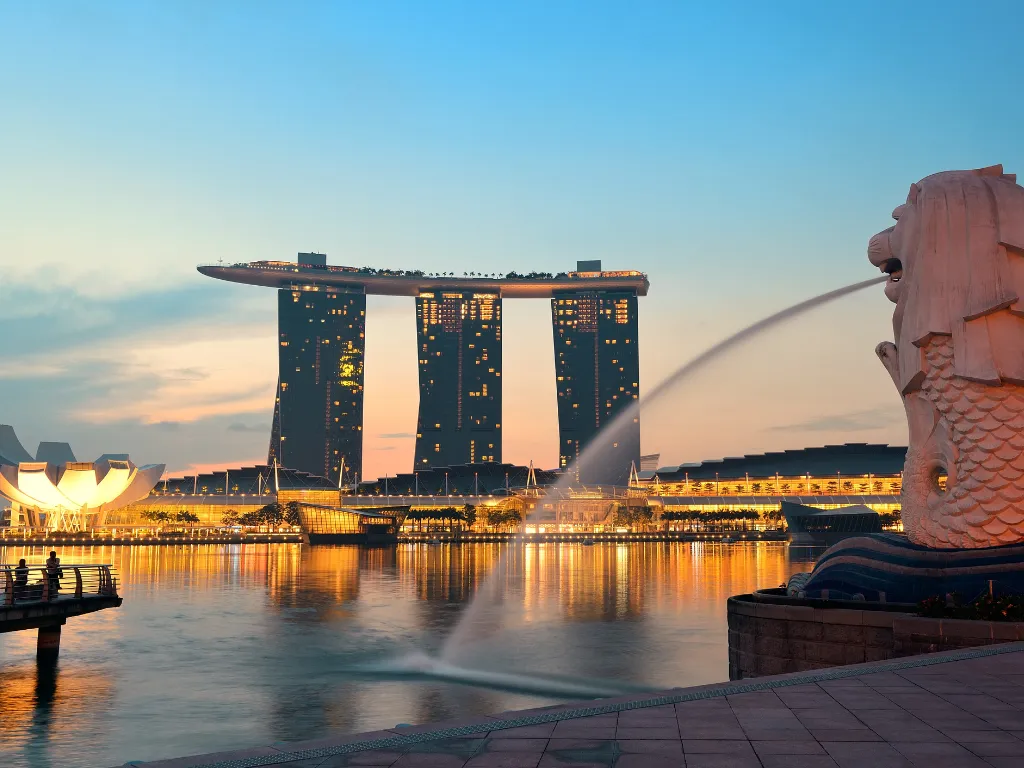- Home
- GPC Singapore
Singapore - Home
Login
Forget Password
Regulatory Authorities in the Chemical Regulation of Singapore are National Environment Agency (NEA) and the Ministry of Manpower. NEA is the authority to regulate some environmentally harmful substances. The Ministry of Manpower requires employers to communicate chemical hazard information to workers and reduce chemical exposure.
Companies import, sell, export, purchase, use, or transport any hazardous substances controlled under the Environmental Protection and Management Act (EPMA) need to apply for hazardous substance license or permit.
News

Singapore Adds Chlorpyrifos and Tightens Organophosphate Controls Under EPMA Hazardous Substances Regime
Nov-11-2025
Singapore, November 2025. Singapore has finalized amendments to the Environmental Protection and Management Act 1999 (EPMA), updating the Second Schedule (Part I) to bring chlorpyrifos expressly under hazardous-substance control, refresh the entry for paraquat and its salts, and substantially expand the category for “phosphorus compounds used as pesticides.” The measure was adopted on 12 August 2025, published on 27 August 2025, and enters into force on 27 February 2026. Once effective, importers, manufacturers, and distributors of the listed chemicals, and products containing them, must obtain the relevant hazardous substance (HS) licence/permit for import, export, sale, storage, use, and transport.
What Changes in the Second Schedule
- New explicit listing for chlorpyrifos. “Chlorpyrifos” is added as a standalone hazardous substance entry following “Chlorosulphonic acid.”
- Updated paraquat entry. The previous line is replaced to maintain coverage of “Paraquat; its salts.”
- Expanded organophosphate category. The generic line “Phosphorus compounds used as pesticides” is replaced by a detailed, illustrative list of insecticidal/acaricidal organophosphates, including (but not limited to): Chlorpyrifos, Methamidophos, Methyl-parathion, Monocrotophos, Parathion, Phosphamidon, Trichlorfon, Acephate, Bromophos, Iodofenphos, Malathion, Pirimiphos-methyl, Temephos, Tetrachlorvinphos. The amendment also codifies specific exceptions:
- Preparations containing ≤ 0.5% w/w dichlorvos and not containing any other phosphorus pesticide;
- Materials impregnated with dichlorvos (no other phosphorus pesticide) for slow release;
- Preparations containing ≤ 1% w/w azamethiphos and not containing any other phosphorus pesticide.
Implementation and Compliance
NEA’s WTO TBT addendum confirms the adoption, publication, and commencement dates and reiterates that affected operators must secure HS licences/permits once the regulations take effect on 27 February 2026. The final texts are available via Singapore’s legislation portal and will appear in the Second Schedule of the EPMA.
Outlook for Industry
The update tightens Singapore’s oversight of organophosphate pesticides, aligning controls with current risk profiles and market practice. Companies handling chlorpyrifos, paraquat (and salts), or the specified organophosphates, including their preparations and impregnated materials, should map inventories against the revised Second Schedule, confirm HS-licensing needs across import/export, storage, use, and transport, and adjust supply and labelling documentation ahead of the February 2026 commencement.

Singapore to Phase Out Six Mercury-Added Lighting Products: NEA Launches WTO TBT Consultation
Sep-18-2025
On 8 September 2025, Singapore notified the WTO (G/TBT/N/SGP/76) of a proposal to control six mercury-added lighting products as
Hazardous Substances under the Environmental Protection and Management Act (EPMA). The measure implements decisions adopted at the fifth Conference of the Parties (COP-5) to the Minamata Convention in October 2023.
Once the regulation takes effect, it will prohibit the import, export, and manufacture of the listed products. Publication in the Government Gazette is planned for Q2 2026, with phased prohibitions taking effect on 1 January 2027 and 1 January 2028. Stakeholders may submit comments until 7 November 2025.
Scope: Products and HS Codes
The proposal covers six categories of mercury-added lamps used for general lighting, with associated HS 2022 codes listed in the notification:
- Compact fluorescent lamps (CFLs) >30 W (e.g., 85393110, 85393130, 85393190, 85393910, 85393990).
- CFLs with non-integrated ballast (≤30 W; ≤5 mg Hg per burner) (e.g., 85393110, 85393190, 85393910, 85393990).
- Linear fluorescent lamps (LFLs), halophosphate (≤40 W; ≤10 mg Hg) and >40 W (e.g., 85393120).
- Non-linear fluorescent lamps (NFLs), halophosphate (e.g., U-bend/circular; 85393190, 85393990).
- NFLs, tri-band phosphor (e.g., U-bend/circular; 85393190, 85393990).
- LFLs, tri-band phosphor: <60 W (≤5 mg Hg), ≥60 W (≤5 mg Hg), and ≥60 W (>5 mg Hg) (e.g., 85393120).
Timeline and Entry into Force
Adoption: To be determined. Gazette publication planned for in Q2 2026.
Prohibitions effective: 1 January 2027 (items S/N 1–4) and 1 January 2028 (items S/N 5–6).
Comment window: Until 7 November 2025 (60 days from WTO notification).
Legal Mechanism and Convention Alignment
The controls will be implemented under the EPMA and related hazardous substances regulations to fulfil Singapore’s obligations under the Minamata Convention amendments adopted at COP-5.
The notification specifies that no changes are proposed to other existing EPMA requirements. The action specifically phases out the six mercury-added product categories listed above.
Compliance Implications for Industry
Once the regulation is in force, the listed lamps can no longer be imported, exported, or manufactured in Singapore. Companies should:
Audit inventories and SKUs against the six categories and HS codes.
Plan product substitutions (e.g., mercury-free alternatives) to meet the 2027/2028 phase-out dates.
Prepare licensing/permit adjustments as needed for any remaining hazardous-substance activities under EPMA (noting that the specific action here is a prohibition of import/export/manufacture for the listed products).
Next Steps and Contact
The National Environment Agency (NEA) is the responsible agency. Stakeholders are invited to provide written comments by 7 November 2025 via the contact details in the WTO TBT notification. Final adoption and entry-into-force dates will be confirmed in the Government Gazette before the 2027/2028 milestones.
Login
Forget Password
Global Product Compliance (GPC) specializes in Global Regulatory Compliance Solutions across sectors
globally. SSS Europe, a familiar name in chemical regulatory and compliance services now formally belongs
under the umbrella of GPC Holding Sweden.
Since 2008, we have emerged as one of the leading names among Global Regulatory Compliance Service
Providers with Representation services in Europe, Asia and Middle East for respective chemical
regulations.

 Twitter
Twitter
